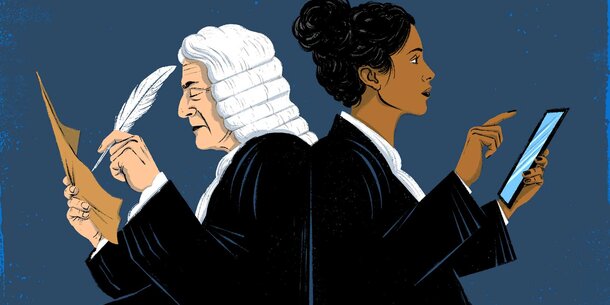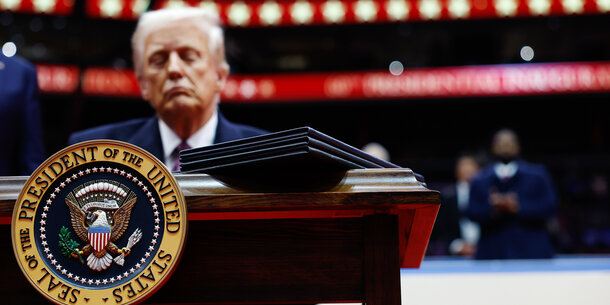Today the Brennan Center for Justice at NYU Law announced the formation of the Historians Council on the Constitution, a group of historians who will work with Brennan Center attorneys to counter the U.S. Supreme Court’s misuses and mischaracterizations of history to decide major constitutional issues.
“The Supreme Court is increasingly relying on what it calls ‘history’ to make key constitutional decisions. But the Court’s sole reliance on the past distorts how we read the Constitution and govern our country. And too often the history is simply wrong or misleading. We created the Historians Council to stem the tide that the Supreme Court has unleashed and to reverse it,” said Thomas Wolf, organizer of the Historians Council and deputy director of the Democracy Program at the Brennan Center. “We’ll correct the record when bad history emerges, but our bigger aim is to change the conversation about how history matters to the law.”
The council includes eighteen nationally renowned scholars in legal history and the Constitution, with expertise ranging from the Founding Era to the Civil Rights Era. The members represent many of the country’s leading institutions and have won the Bancroft Prize, the Guggenheim Foundation Fellowship, the MacArthur Fellowship, the Pulitzer Prize, and other high honors in their field.
The council will use amicus briefs, the media, public events, and scholarship to separate historical fact from fiction and push the legal world to adopt more responsible approaches to the historical record. Its members are:
|
|
As one example of the council’s work, three of its historians wrote an amicus brief that the Brennan Center filed on their behalf in Relentless v. Department of Commerce, which the Supreme Court is hearing today. The historians challenged the notion that the Court should be relying on history at all to decide the important questions before it and explained the true history of the relationship between federal agencies and federal courts.
The council will tackle various constitutional issues that the Supreme Court is facing or will face soon, such as whether a president has immunity from criminal prosecution, whether the country may use race-conscious remedies for longstanding racial discrimination, and what powers the people have to ensure their right to vote.
Reactions from members of the council:
“Arguably more than ever, the United States Supreme Court is turning to history to interpret the Constitution’s meaning and resolve major controversies arising under it. Yet the Court often does violence to the very past it appeals to for authority. More than ever, we need to hear from those who know how to accurately recover the legal past on its own terms.” — Jonathan Gienapp, Associate Professor of History, Stanford University
“As courts increasingly rely on accounts of the past to justify their decisions, the scholarship of professional historians has become important in new ways. Yet it often seems historians and the courts are operating in completely different realms. Enter the Brennan Center’s Historians Council. I’m honored to be part of a group that will spread the word about what historians do and build bridges between historians and the legal profession.” — Kate Masur, Professor of History, Northwestern University
“Now, more than ever, the Supreme Court is turning to history to try to figure out some of the most important questions facing our country. What are our rights? What should the role of government be? As historians, our goal is to use our training and expertise to cut through the loudest partisan and ideological voices in the public square to present the relevant history of the founding era and beyond.” — Gautham Rao, Associate Professor of History, American University
“At this fraught moment in our national history, Americans need informed knowledge of how and why different clauses of the Constitution made their way into the text. It is not enough to play language games with the spare wording of the Constitution. We also need to know why the framers of the original document and its crucial amendments acted as they did. Historians now have both an opportunity and indeed a civic responsibility to elevate our public debate, to identify when the decisions of public institutions — notably including the rulings of the Supreme Court — rest on problematic or flawed interpretations of the historical past that should unite us. That is the true mission of the new Historians’ Council on the Constitution, which I am delighted to join.” — Jack Rakove, Professor of History and Political Science, Emeritus, Stanford University
More information about the council and its members is here.

